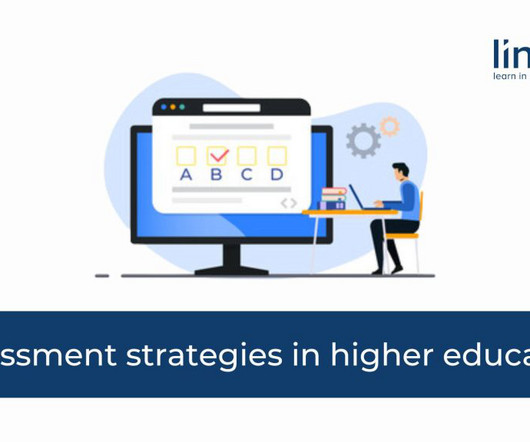OPINION: When it comes to liberal-arts education, online learning changes only the tools
The Hechinger Report
APRIL 26, 2020
Those who expected radical disruption in the wake of the Great Recession now seem to believe that it’s the coronavirus that will lead to a massive migration of students away from in-person learning and toward the promised land of tech-infused distance education. Related: Will this semester forever alter college?














Let's personalize your content